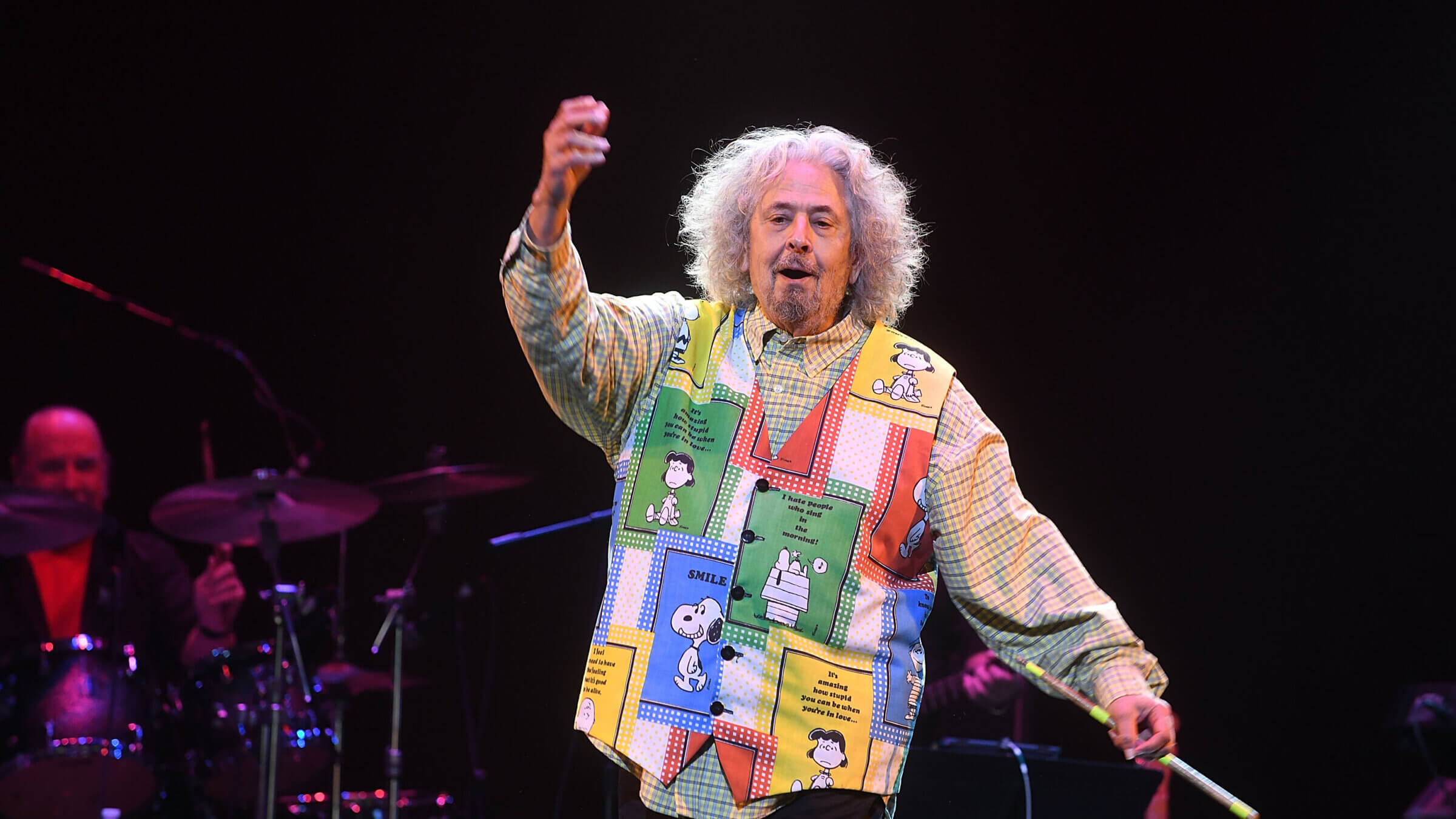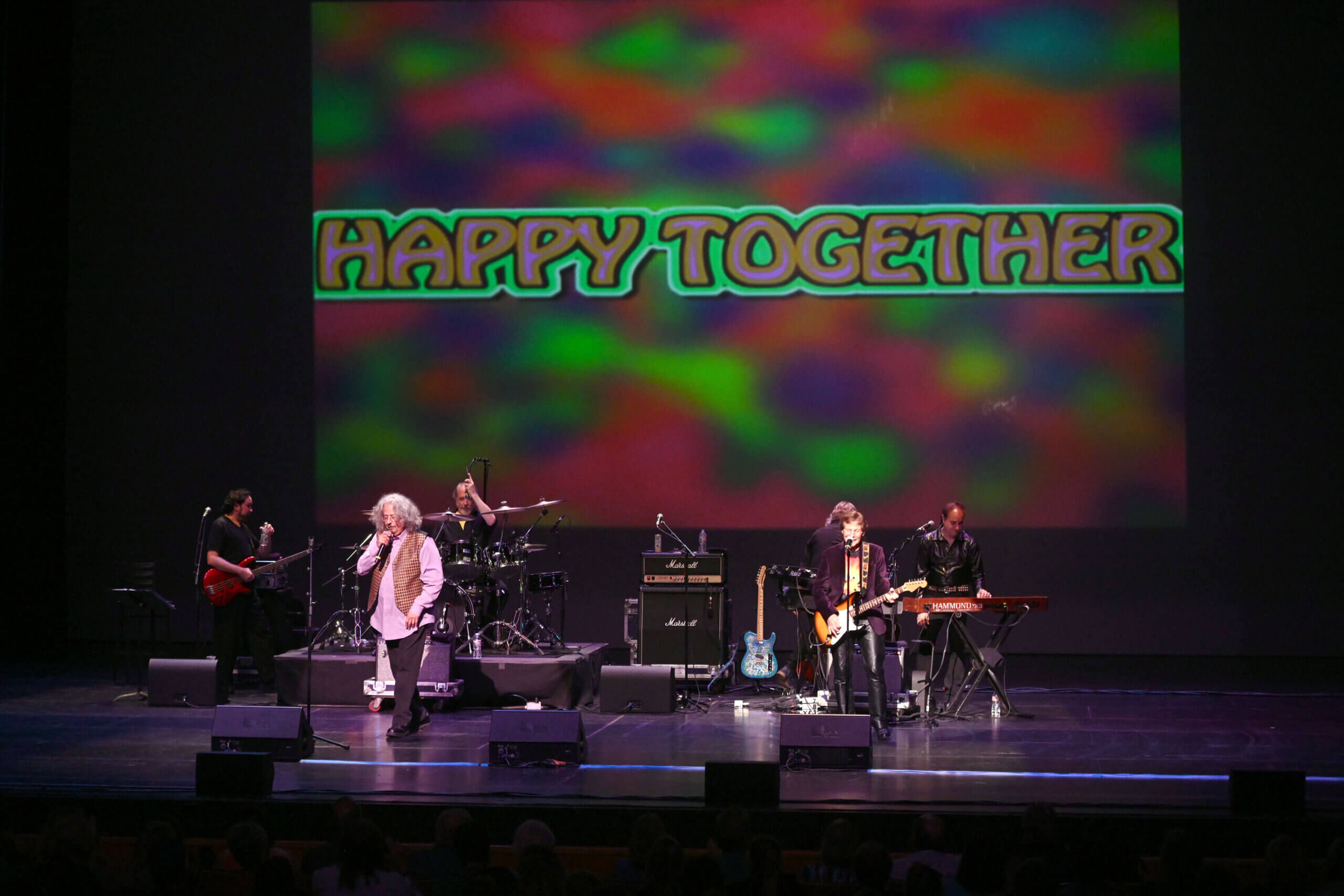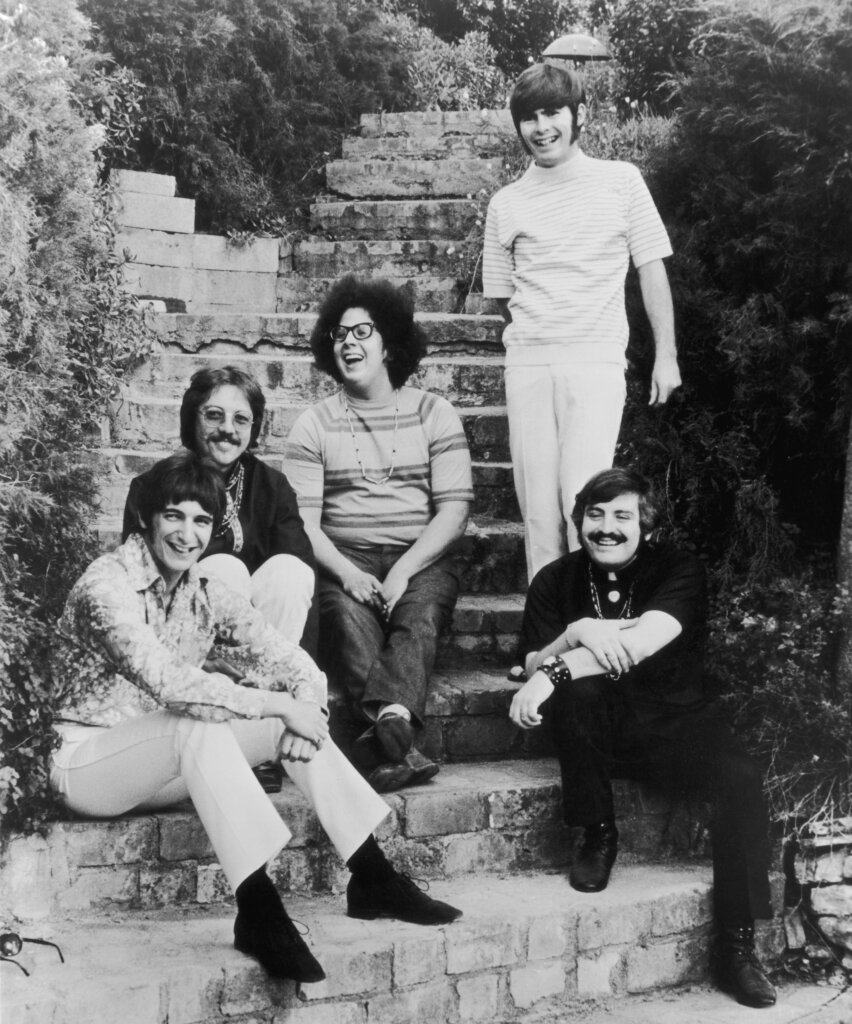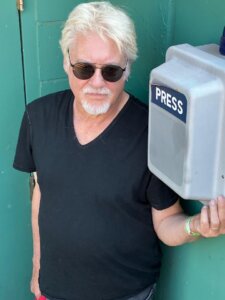How Mark Volman and The Turtles shaped the music industry
Volman, who died last week, was often taken less seriously by critics than he was by his peers

Mark Volman of The Turtles in 2022. Photo by Getty Images
I was speaking with Mark Volman, one half of The Turtles pop group, on the phone about a year ago when I asked him a common — but in this case not innocuous — opening question: How are you?
“Oh, I’m dealing with it,” Volman said. “It was a little frightful at the beginning, but I’m doing fine.” He was talking about Lewy Body Dementia, which he’d been diagnosed with in 2020. It was the same debilitating disease Robin Williams had, and Bruce Willis and Ted Turner have.
Of course, the follow-up question had to be about performance. Volman was once again about to go on the road, helming a multi-band bill comprising a rotating selection of ‘60s rock groups. It was called the Happy Together Tour, named for The Turtles’ No. 1 hit from 1967.
Volman was on tour without his co-founding Turtles partner, Howard Kaylan, who retired from the road in 2018 due to heart and back issues.
“I don’t know if I’m the right one to ask,” Volman said about any adverse effect of the disease on his own performance, “but I don’t believe so. In fact, we’ve now done three years of tours with it, so it’s been a learning experience. But it’s been fine. This is a show that goes on.”

This year, however, Volman was forced to bow out of the summer tour; the show’s longtime musical director-guitarist, Godfrey Townsend, filled his spot, and Ron Dante once again stepped in for Kaylan. (Volman once told me he looked at these Turtles gigs like a Broadway show: “So, the part of Howard Kaylan is being played by Ron Dante.”)
Volman, who was reared by a Jewish father and a Catholic mother, died four days after the tour’s completion, Sept. 5 at the age of 78 in a Nashville hospital. That was Volman’s home; he was a professor at Belmont University teaching music business classes. His publicist, Ame Van Iden, said the cause of death was from a blood disease.
Before our most recent talk, I had last talked to Volman in 2018. He was healthy, having undergone a successful surgery for throat cancer in 2010. At that time, his bandmate Kaylan’s health was the main concern.
The multiple Happy Together tours put the Turtles back on the map in the 21st century (oldies division), featuring acts like the Cowsills, Little Anthony and the Vogues, among many others bands of the era.
Some people may have thought the feel-good hits featured on the tour were guilty pleasures, but not Volman. “I’ve never heard it put that way, and it’s not a way I look at it,” he said.
The Tour was, though, a veritable human jukebox. “That’s a really good way to put it,” Volman said. “It works so well because the audience knows that when you come to the show, our emphasis is on hit records, not B-sides and collectibles. This tour is all known, well-played hit songs.”
“You start to realize as time goes along,” he continued, “you’re able to stand back and see how fortunate we’ve been to have this one thing we wanted to do — to be on stage and sing. And the fact that we’re still able to do it, it’s really kind of eerie. If you’d told us we were going to be in our 70s doing this show, I think we would have had you put in a hospital. Who knew then that the generation of our songs was going to live on through this tour?”
The Happy Together package was, mostly, pop, bubblegum and soft-rock, with an occasional nod to middle-of-the-road hard rock. It kept to upbeat, optimistic songs.
“That’s something that Howard and I and the producers of this show were very conscientious about — who gets invited to be a part of it, year-in year-out,” said Volman. “We’re sticking to a certain philosophical concept, which is really a very positive one. Even when we started thinking about using songs that might be a little bit more timely, we didn’t really want to regurgitate the Vietnam War.”
‘Sunshine pop’ and more
The Turtles had five Top 10 Billboard hits from 1965 to 1969: “Happy Together” — their sole No. 1 — “She’d Rather Be with Me,” “Elenore,” “You Showed Me,” and their cover of Bob Dylan’s “It Ain’t Me, Babe.” Their West Coast kind of music has been described as “sunshine pop.”
“Absolutely,” said Volman. “That’s definitely what we tried to center it on.”

But Volman also produced heavier music with Kaylan, laden with sarcasm, in the ‘60s, under the band name Flo & Eddie. (Flo – short for Phlorescent Leach – was Volman, Eddie was Kayman.) They sang with Frank Zappa’s Mothers of Invention from mid-1970 through the end of 1971, and after Zappa, they took the act out on its own, releasing four albums during the early-mid ‘70s and opening shows for Alice Cooper.
If Jewish humor is best defined by “wordplay, irony and satire and themes [that are] highly anti-authoritarian,” as Wikipedia has it, that would be the Flo & Eddie part of Volman’s career. Volman referred to Flo & Eddie as “characters,” and in their personas as the pair, he and Kayman penned some hilarious, scabrous pop-hard rock songs that sent up the clichés of rock culture and stardom. It was edgier than the sunshine pop of The Turtles.
Flo & Eddie skewered, variously, themselves, the business they were in, and many musical luminaries including Joni Mitchell, Yoko Ono, the Beatles and even T.Rex’s Marc Bolan, for whom they sang harmony vocals on four albums.
But, although Flo & Eddie was a departure from the sunny Turtles, Volman did not see it as a sharp break. “The music the Turtles made, characteristically, definitely, had a tongue-in- cheek attitude. And that doesn’t change,” Volman said.

“Because of our relationship to Frank,” he added, “Flo & Eddie allowed us to dabble lyrically and emotionally in areas that, for us, were not just comedy, but serious at times because it had political overtones,” he said. “It had a whole lot of tongue-in-cheek and it demanded a lot more thought.”
As an example, Volman keyed in on Flo & Eddie’s 1976 song “Keep It Warm.”
“You had everything from shooting from towers to a president who doesn’t deserve the job” he said, referring to the 1966 Texas mass shooting and Ronald Reagan’s presidency. “There’s a lot of truth in that song. We were writing things that were a little more thoughtful for us.” The song still has contemporary resonance, too; in 2023, it served as the theme song for the critically acclaimed horror movie “Late Night with the Devil.’’
Along with their frontman roles in the Turtles and Flo & Eddie, the duo were much sought-after backup singers doing such for Bruce Springsteen, Alice Cooper and John Lennon, among many others.
And the pair inspired others in the industry. The Cars former keyboardist Greg Hawkes met Volman and Kaylan in 1976 when Hawkes was playing on a TV show with comic Martin Mull and Flo & Eddie were invited guests. A friendship began to form, and they stayed in contact.
“Mark would just reach out and get in touch with me from time to time,” Hawkes said earlier this week. “It wasn’t until after the Cars broke up in ’87 that I started playing with them.”
They were billed as the Turtles featuring Flo & Eddie. Hawkes was with them for seven years. “Mark really did have a mentor quality,” Hawkes said. “I saw how I could have a musical life after the Cars. I could do this other thing, play with these guys and from there I switched over and played with Todd Rundgren.”
“I can’t remember a time when I saw him mad,” added Hawkes of Volman, “Mark was super warm where Howard had that acerbic edge. I don’t want to say Mark was naïve, but he played the simpleton, goofy guy, almost a Laurel and Hardy relationship. But Mark was actually the more savvy of the two when it came to business; he was the de facto manager, talking to promoters and doing the backstage business.”
Two years ago, John Cody published a book, “Happy Forever,” that he’d been compiling for a decade, an oral history that had no fewer than 106 outside voices telling tales about Volman, including musical greats like Alice Cooper and the Monkees’ Micky Dolenz, with Volman himself adding interjections.
“If it were up to me, they would be in the Hall of Fame, but they had that goofy persona, so music critics took them less seriously than, say Procol Harum,” Hawkes, who is also interviewed in the book, said. “They’re one of the most underappreciated acts in music history.”
















